Share the post "How Long Is Soccer Practice (How It Ends + Tips)"
Soccer practice is a great way to prepare for an upcoming game with your teammates and coach.
Training sessions can be as important as a game – so it’s important to be ready. I’ll take you through what you can expect at practices and how you can make sure you’re prepared for them.
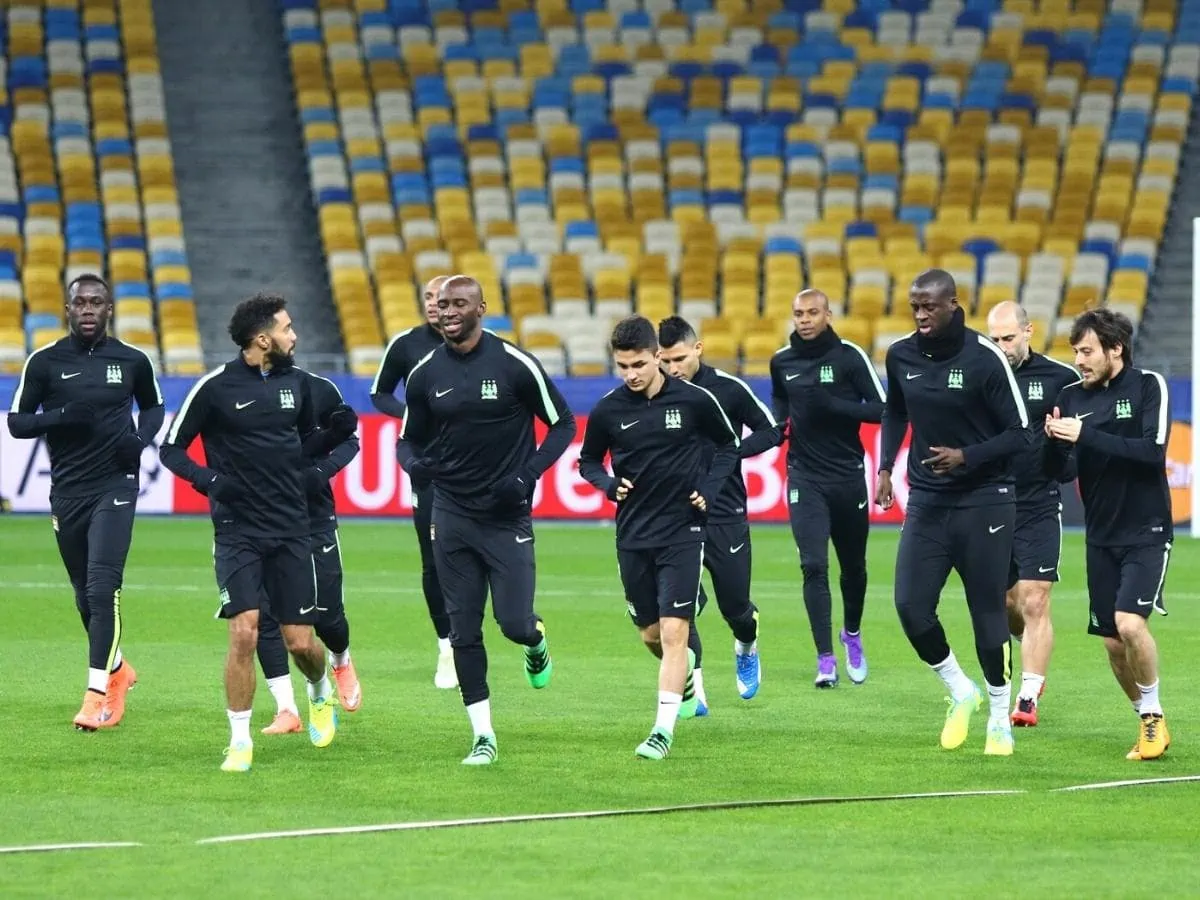
How long is soccer practice usually?
Common soccer practices will range between 1 and 2 hours, depending on age.
- For kids 8 and under, you will probably struggle to keep their attention for more than 1 hour.
- Kids 10-16 will last about 1 – 2 hours.
- Players 16 and older can last longer with high variations and regular breaks ~ 1.5 – 3 hours.
Something to keep in mind if you are running the practice is you don’t want to overwork them. Over-training can lead to injury and burnout.
If your training lasts over 2 hours, you may overwork the players, which can lead to injuries and loss of focus.
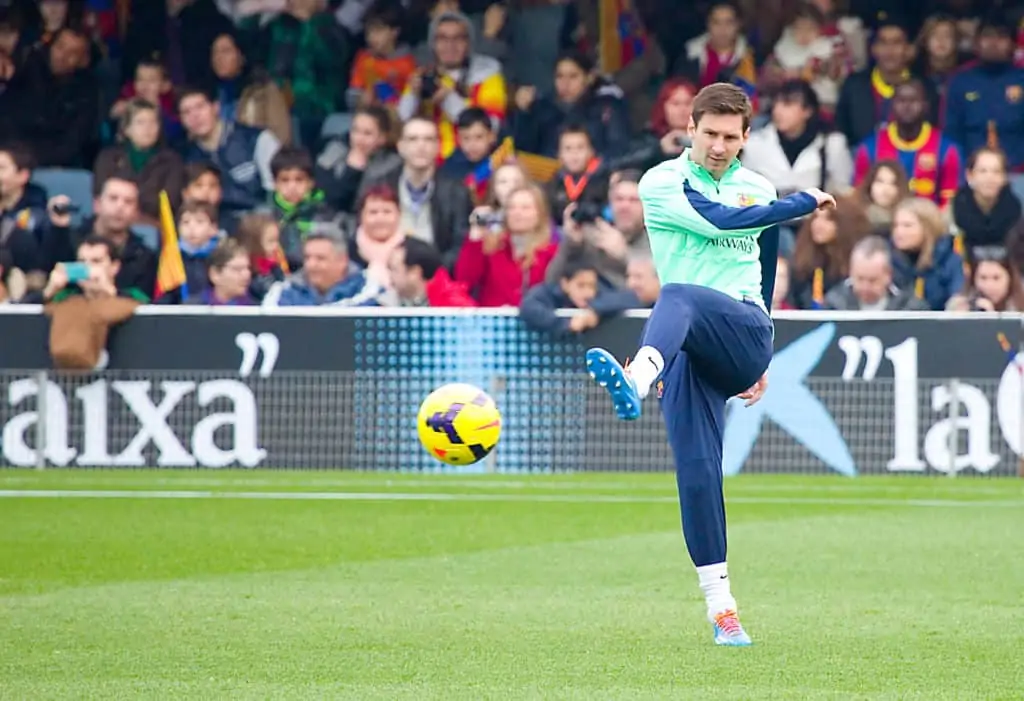
What do soccer practices do?
Soccer practice aims to enhance your skills, improve fitness, and get better at playing as a team.
Good practices allow the players to understand the sport better and, depending on the age group, know the game plan for the next game.
A younger player will practice to improve the game and develop their skill set.
While more advanced players will also use practice to improve, they will also use it to drill in their tactics and the plan for how they will play in their next match.
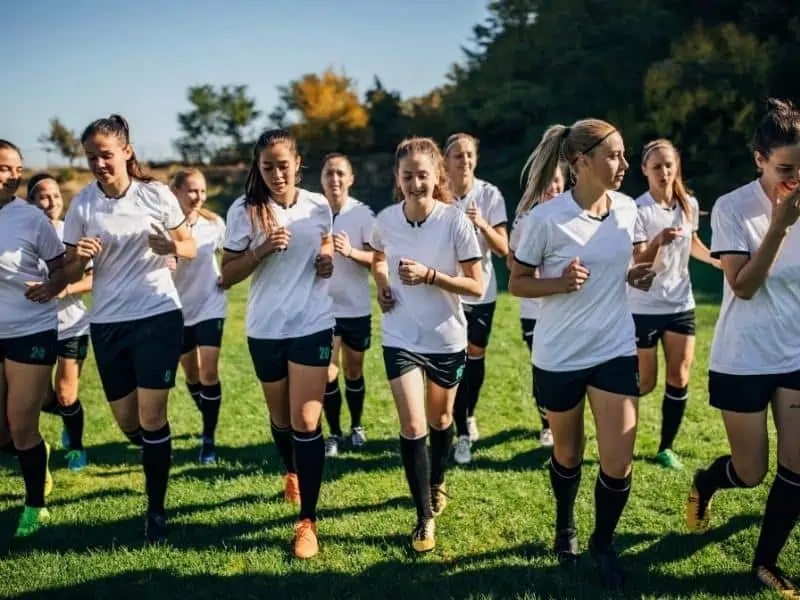
How do you prepare for soccer practice?
- Get a good night’s sleep the day before practice
- Eat healthy food on practice day
- Get your training clothing prepared
- Have an hour of relaxation before leaving
- Get to practice with 15+ minutes to spare
- Socialize with other players before practice
- Be ready when the coach begins the session
If someone wants to become proficient at something, being prepared is the most important element to achieving their goals. Falling into soccer practice could leave you injured, overwhelmed, and not wanting to return.
To be prepared for practice as a player, the first step is to get your mind prepared. Letting go of whatever is going on outside practice is key to a successful day.
Physically, having a proper warmup and stretching before practice is also vital. Make sure you have eaten enough proper food and have had plenty of water throughout the day before practice starts.
Make sure you are ready to work hard as well. Legendary manager Pep Guardiola once said;
“If you train badly, you play badly. If you work like a beast in training, you will play the same way.”
Pep Guardiola
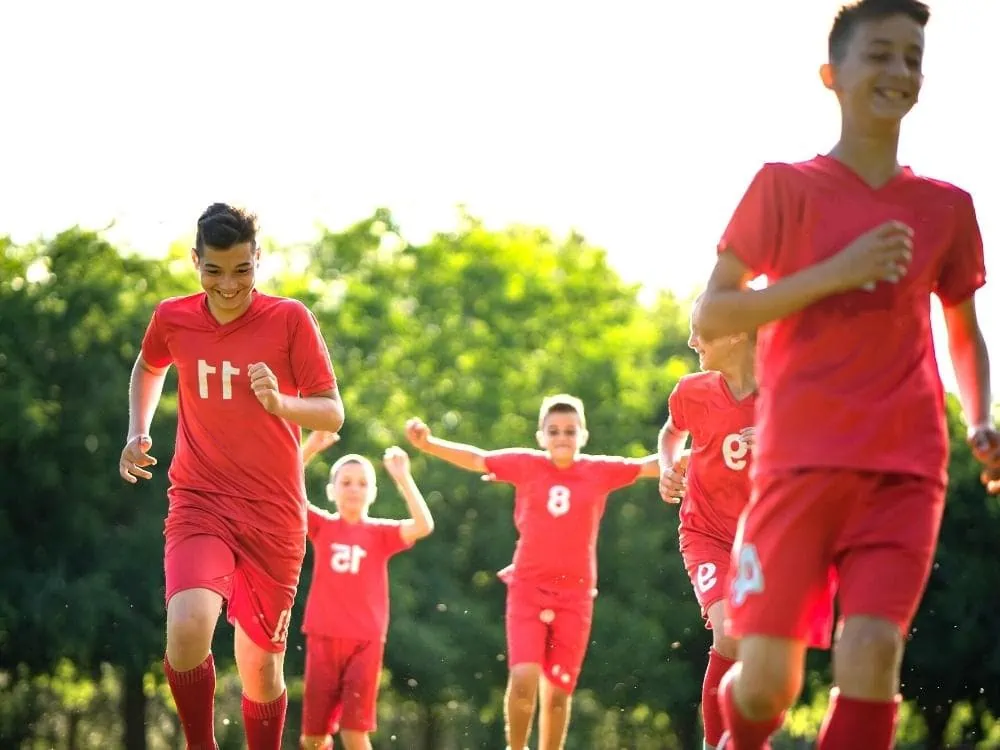
What to do before soccer practice?
Make sure you are eating and drinking enough, having a proper warm-up and stretch, and focusing on the current practice all still apply.
Have a relaxing moment before soccer practice, so your energy levels are at their peak. The same things apply to coaching. Have a rundown planned out before practice starts.
Get their 45 minutes early to set up drills and spend time the night before developing a practice schedule and plan.
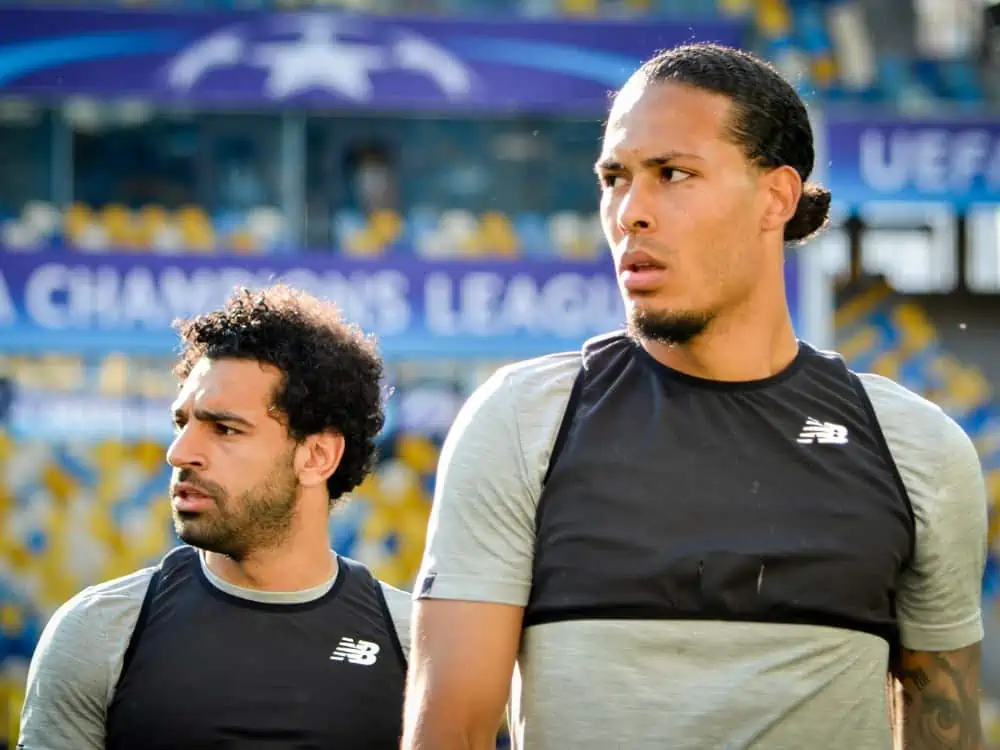
What should soccer practice look like?
A solid practice will improve individual skills over time, build team unity and improve fitness.
Players pinging from drill to drill, nobody standing around for minutes on end, players doing specific drills for their position, finished by a team activity is a sound practice.
To the outside viewer, soccer practice could look a bit chaotic. If you are thinking this about watching a practice, don’t be scared off.
This is a common thing. Having different coaches at different drills for different players’ positions can look hectic, but it is much more organized.
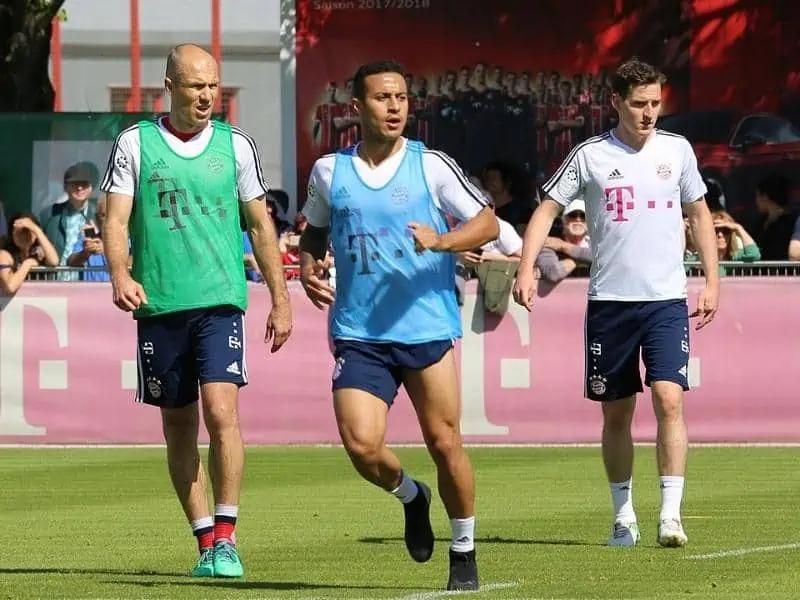
What should soccer practice consist of?
A good soccer practice consists of:
- Warm-up, basic individual activities (about 4-5 players per station).
- Position-specific activities (players train with their specific position).
- Group activity (a scrimmage is a good one).
- Team cool-down (some light jogging and stretching).
A gentle warm-up is the best way to start a session. The players should begin this without using a soccer ball.
The aim should be to have most of the muscles in the session stretched to be ready for action. Once the players are ready to play, the players will divide into groups, and the coach is central to all of the players.
All attention should be on the coach and the instructions for the drill. Focus and taking instructions are a part of the session.
A good soccer player will deliver what the coach wants.
Be prepared for the physical aspect of soccer – this can be demanding to begin with, but over a few weeks, it will become easier.
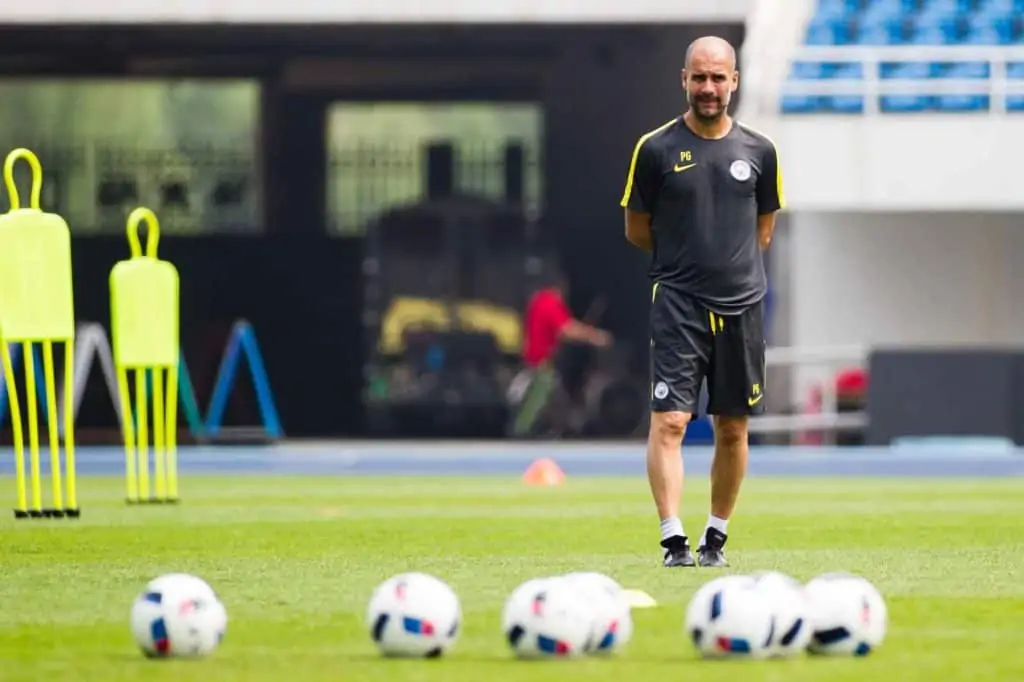
What are three skills you could practice to improve in soccer?
The three most important skills you should practice to improve in soccer are your technique (passing/control), dribbling, and physical endurance.
When practicing your technique, the essential thing is to master your body control. If you are clumsy and not in control of your body when playing, your technique will not be good enough.
I am learning to slow the game down and be in control. Mastering the basic techniques of dribbling, striking the ball, or defending all starts with controlling the body.
Constantly doing dribbling drills is a staple for all players who wish to improve at soccer. Dribbling the ball without looking down or thinking about it sets you apart from others.
The best players in the world dribble without thinking, and that comes from years of constant drill work. Having endurance can set you apart from other players and make you stand out.
You will be special if you can be the type of player to run all around the field and not get tired. Building your lung capacity is something you can control and work at, separating you from the other players.
Players have made a career out of endurance ability. Chelsea’s midfielder and World Cup winner N’Golo Kante is the perfect example.
Kante once ran 12.11km in a single game, while the average for most players is less than 10km. He wasn’t even fully healthy at the time!
His old coach, legendary manager Claudio Ranieri, once said,
“This player Kante, he was running so hard that I thought he must have a pack full of batteries hidden in his shorts. He never stops running.”
Claudio Ranieri
Mastering your craft is essential to anyone trying to improve on their goals. It always comes down to doing the basics before anything else. If you first master these basic skills, you will have a successful soccer career.
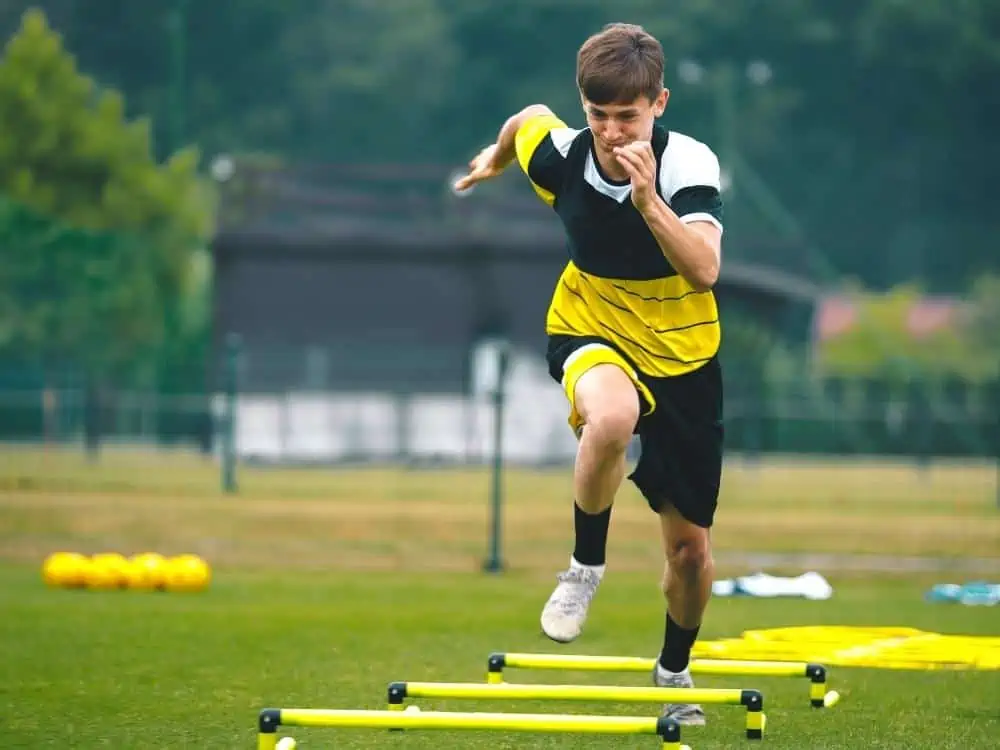
How to prepare as a soccer coach before practice
As a coach, you must have a solid rundown before practice starts. You need to know what drills you plan on doing and set them up before practice begins.
- Spend the time the night before going over the schedule and get a solid game plan down.
- Get there at least 30-45 minutes early to do this.
- Prepare your practice that has variation, competition, and fun. A game at the end of a session is always a favorite part of the practice.
- Encourage your players throughout the session with positive feedback.
- Keep players interested by noting what works well and how the players respond.
Soccer is a fantastic sport to coach and play; it should be fun for everyone involved – be prepared, practice, and improve weekly.
Share the post "How Long Is Soccer Practice (How It Ends + Tips)"
Joel is a seasoned soccer journalist and analyst with many years of experience in the field. Joel specializes in game analysis, player profiles, transfer news, and has a keen eye for the tactical nuances of the game. He played at various levels in the game and coached teams - he is happy to share his insight with you.



